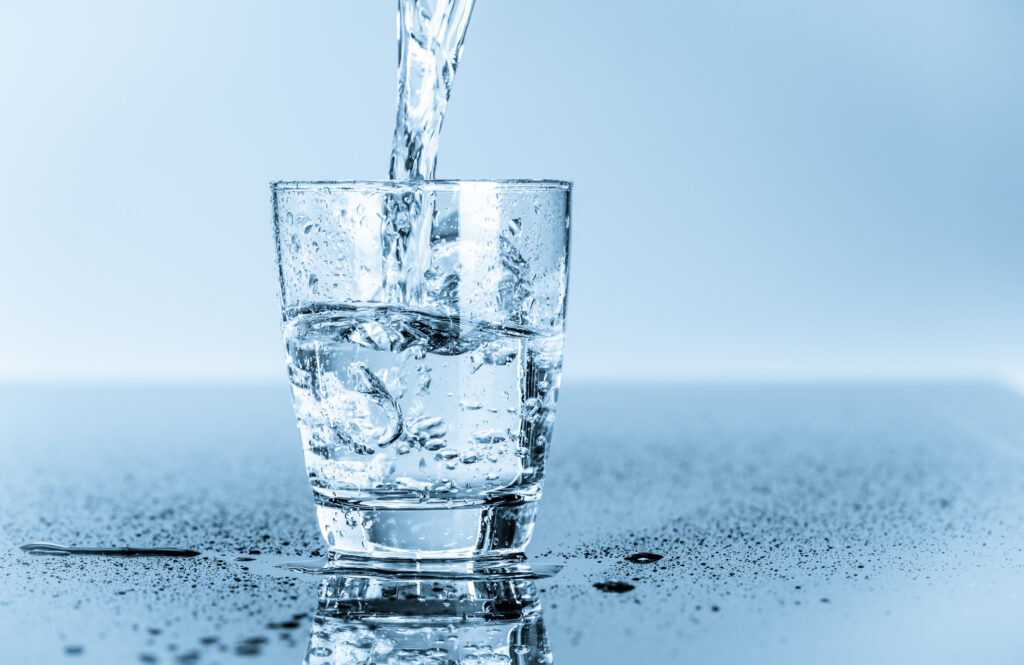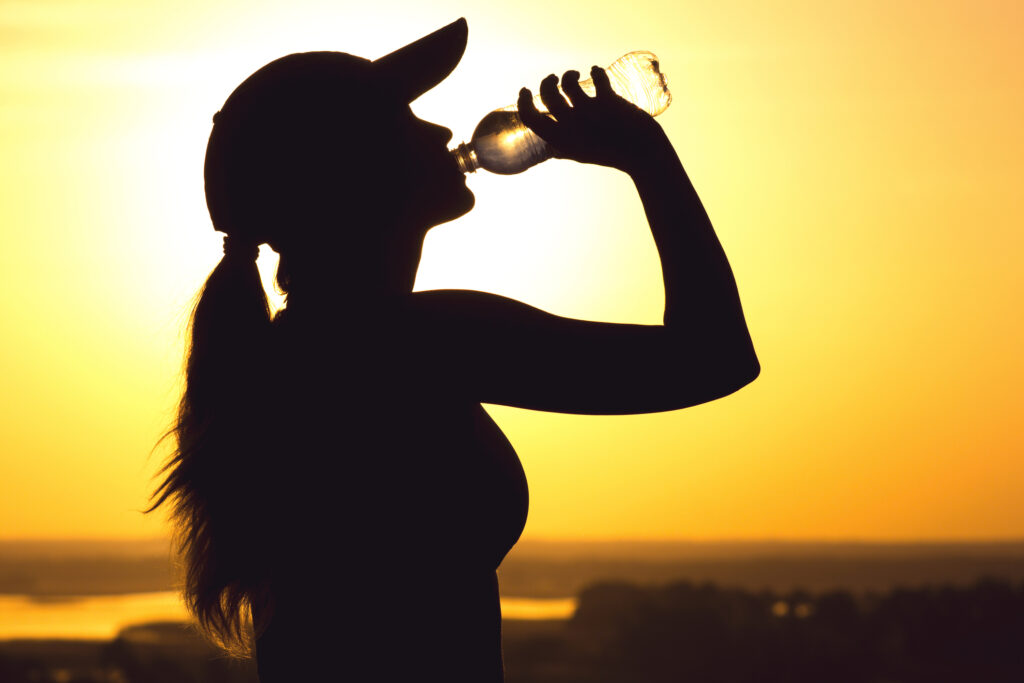
We can’t live but a few days without water. Water is vital for life and it’s also vital for proper recovery from exercise. We all know we need to rehydrate after a workout, but how much turns out to be much simpler than I expected.
In general, you can properly rehydrate after a workout by listening your body’s thirst signals. The body does an amazing job at monitoring and self-regulating itself so you can trust the signals it is giving you. Drinking water when thirsty is the best way to rehydrate, but you may need to replenish with electrolytes after longer workouts.
Drinking water after exercise is important to avoid dehydration and support your body’s recovery processes. Being properly hydrated helps regulate your body temperature, delivers needed nutrients and oxygen to your body, and aids in the removal of waste products. Find out some the things you should know when it comes to proper hydration.
Why proper hydration is so important to recovery
Muscle Repair
Muscles need to be hydrated to repair and rebuild. We all know good blood flow is needed to aid in recovery. Water is essential to good blood flow with the body being made up of 60% water and the blood being 90% water by volume.
Water is necessary to help get needed nutrients to the muscles and carry away waste products. Not only does proper hydration aid in removing waste products from damaged muscle cells, but it also aids in eliminating these waste products from the body.
Digestion
Proper hydration also aids in good digestion which affects the production of glycogen. After an intense workout, the body is depleted of glycogen stores. The faster these are replenished, the faster you can recover.
Glycogen is most effectively replenished with a good combination of protein and carbohydrates. Water is needed to break down and synthesize these nutrients so they can be used by the body.
The following quote from a 2004 study highlights the impact restoring muscle glycogen can have not only in limiting muscle damage, but in more quickly recovering for your next workout. For more information on post workout recovery nutrition click here.
“The addition of protein to a carbohydrate supplement also has the added advantage of limiting post exercise muscle damage and promoting muscle protein accretion. Along with a rapid increase in muscle glycogen, these processes can have a significant impact on subsequent exercise performance.”
Regulation of Muscle Glycogen Repletion, Muscle Protein Synthesis and Repair Following Exercise – PMC (nih.gov)
Hormone Levels
A dehydrated body after exercise has been shown to have higher levels of cortisol and norepinephrine. Cortisol, also known as the stress hormone, is important for recovery, however sustained and increased levels of cortisol are associated with insufficient recovery, overtraining, and fatigue.
High levels of norepinephrine can lead to high blood pressure, excessive sweating, headaches, and more. While some elevation in these hormones it be expected after exercise, getting these levels back to normal faster will speed up recovery and have you feeling better faster.
Why you can trust your signal for thirst

There is a lot of companies and advertisers trying to get you buy their sports supplements and drinks. With all the noise surrounding hydration it can be difficult to know how much to drink, if water alone is enough, and if we can trust our own senses when it comes to hydration.
As a general rule, you can trust your sense of thirst to properly rehydrate if you are not exercising for long durations, in excessive heat, or are chronically dehydrated. For most people, the body is very efficient at regulating itself in real time and can even anticipate future needs making it a reliable source if we listen to the signals.
Scientists have found the area of the brain controlling thirst has cells outside the blood-brain barrier. This allows the brain to keep tabs on factors that indicate whether the body needs more water or not.
This area of the brain also collects information from other parts of the brain about blood pressure, blood volume, and whether you’ve recently eaten which also will affect your need for water. In order words, not only is your body constantly regulating its current status, it is anticipating future needs.
Hydration before and during a workout will affect your recovery

Make sure your properly hydrated before a workout as your muscles need a ready supply of blood carrying much needed oxygen. Water is also used in the production of ATP which convents nutrients in the body into the energy needed during a workout.
If you are not properly hydrated, your may experience muscle fatigue, cramping, muscle spasms, and more. If you are exercising in the heat, the results may be even more severe. All this increased damage will affect not only your performance, but your recovery as well.
Hydrating during longer bouts of exercise can significantly impacts recovery. A 2012 study found that participants who drank water during a 90-minute run on a treadmill recovered quicker than those who drank no water. Participants heart rates were measure post workout and found those who drank water had heart rates that recovered faster.
Commentary: role of hydration in health and exercise | The BMJ
When should I add electrolytes for proper recovery?
You may find a need to supplement with electrolytes if you exercise for longer than 45 minutes or if exercising in excessive heat. The body loses water through sweating, but it also loses salts and other minerals. The body may need to replenish not just water, but also needed electrolytes.
There is no hard and fast rule with regards to how much should be replaced. A sports drink will usually suffice but be aware of the sugar content. Sugar content can vary widely in sports drinks and drinking a lot of sugar can make you more thirsty.
Also be aware that sports drinks are not the same as energy drinks. Many energy drinks contain caffeine and a lot of sugar. A good rehydration recovery plan should limit both of these ingredients.
Key Takeaways
Water is the best way to rehydrate yourself post workout and it’s never been simpler to properly rehydrate. You can generally trust your body’s thirst signals when gauging how much to drink.
Another rule of thumb to tell if you are properly hydrated is by checking the color of your urine. A properly hydrated body will have light-yellow colored urine.
Some may find it difficult to drink plain water. Adding some lemon juice or other natural fruit flavor may make it more appealing. As mentioned, avoid adding sugar as this can inhibit properly rehydrating.
A properly hydrated body will give you the best opportunity to recover quickly, with less pain, and be ready for next workout so drink up!
**The above information is not medical advice. Be aware there are many exceptions such as exercising in the heat, a body that is chronically dehydrated, and other abnormal situations or medical conditions where the body is not sending accurate signals for proper hydration. Seek medical advice and attention if you are uncertain or experience any issues such as nausea, rapid heart rate, diarrhea, excessive sweating, or any other concerning symptoms.